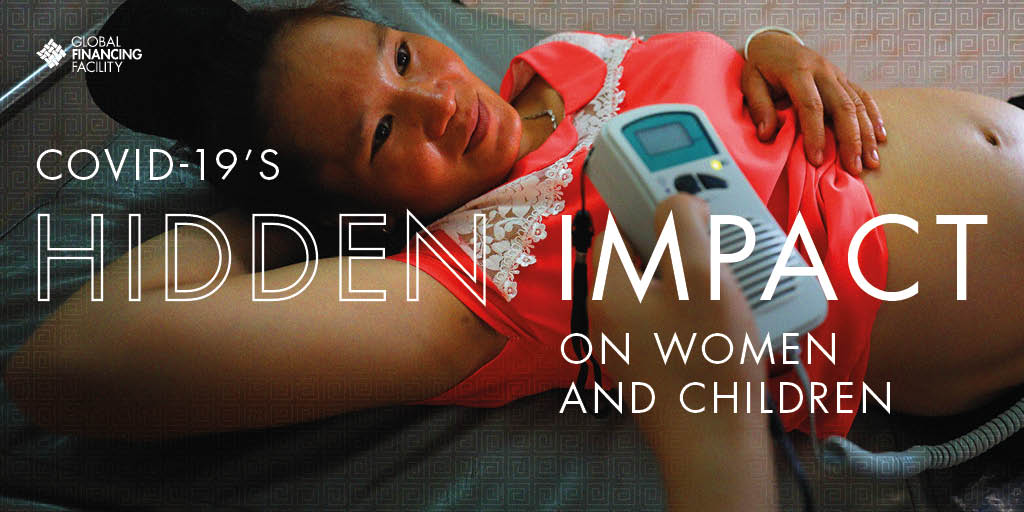Essential health services for women and children in many lower-income countries are being disrupted by COVID-19, according to new findings released by the Global Financing Facility for Women, Children and Adolescents (GFF), using the most extensive quantifiable data available to date. The analysis goes beyond previous projections and draws on data reported by 63,000 health facilities.
Substantial disruptions have been seen in outpatient visits and vaccinations for young children in most countries. Disruptions in care for pregnant women and new mothers, and safe deliveries by skilled health workers were also seen in several countries.
“These disruptions confirm our early warnings that secondary health impacts caused by COVID-19 are putting at risk many years of hard-fought gains in women’s and children’s health and nutrition. The international community must respond quickly and decisively to save lives and protect the delivery of these essential services as part of a robust recovery from the pandemic,” said Muhammad Pate, Global Director, Health, Nutrition, and Population, World Bank and Director of the GFF.
New analysis of country data through June 2020 shows:
- Childhood vaccination was the most disrupted service among the countries studied, with a significant drop in the number of children fully vaccinated in Liberia (35% drop), Nigeria (13%) and Afghanistan (11%). With vaccine programs protecting millions of children from a wide range of common childhood killers – and significantly reducing childhood mortality – these disruptions are deeply concerning.
- The number of outpatient consultations fell in all countries where this was monitored. The largest reduction was observed in Liberia, with a 35% drop in consultations for children under five years of age.
- Many women were at greater risk of complications or death from pregnancy. The number of women who attended all four recommended medical visits during pregnancy dropped in Liberia (18%), and the initiation of women seeking medical care during pregnancy fell in Nigeria (16%).
- Early survey results from Nigeria show that 26% of respondents who needed health services said they could not access the services they needed. Of those, a majority – 55% – said they couldn’t access because they could not afford to pay, while a quarter of respondents said this was due to lockdowns and movement restrictions imposed to control the pandemic.
- Disruptions vary across indicators and countries. For example, in Nigeria, there was a more than 10% decrease in April and in May a 15% decrease in family planning services, and a 6% decrease in women delivering babies at health facilities. However, there are mixed results across indicators in most countries. For example, in Afghanistan, while there were no significant changes in postnatal consultations as a result of the crisis, there was a 14% drop in outpatient consultations.
